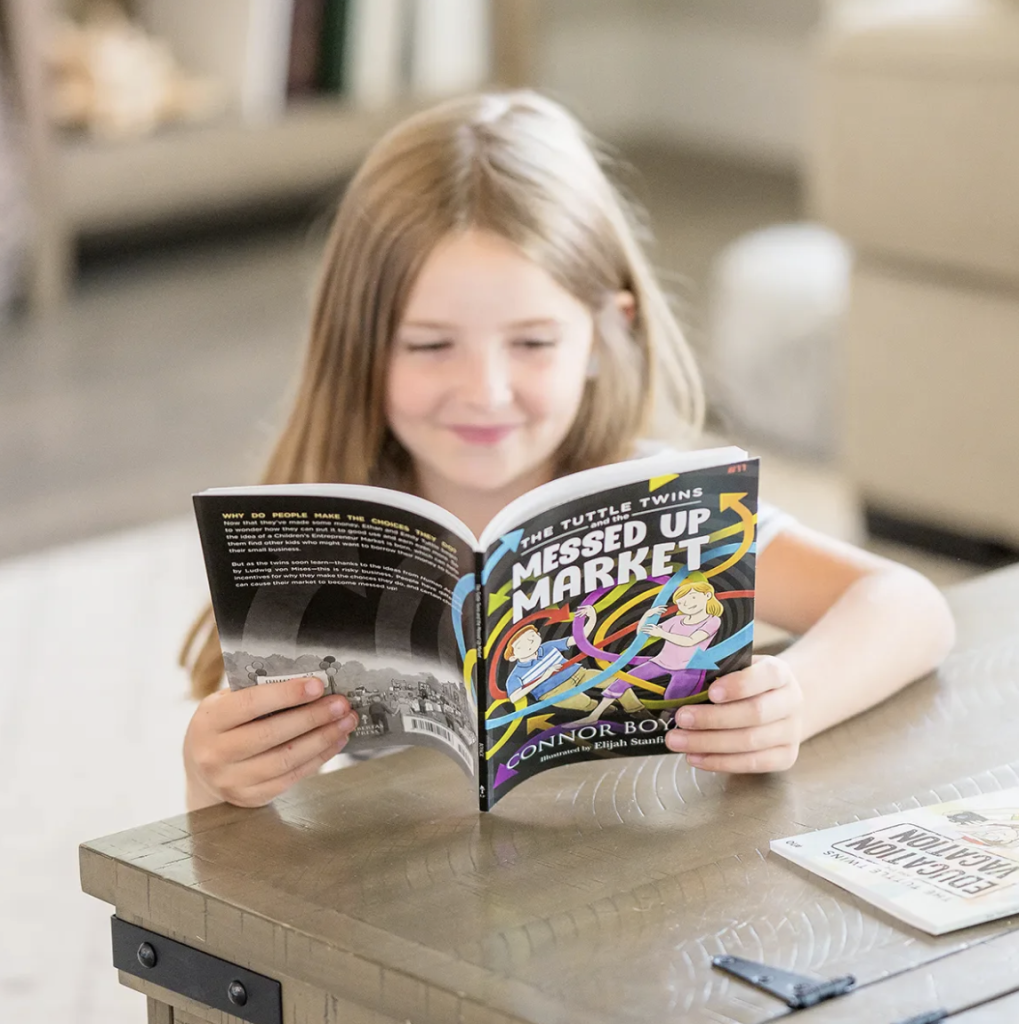Are you concerned about a lack of economics education for your kids? If so, you’re not alone. Believe it or not, only 28 states require students to take an economics course to graduate high school, while just 35 states require a personal finance course to graduate according to the Council for Economic Education (CEE). If you live in one of the states with no requirements in these areas, it’s up to you to fill that massive gap in your kids’ education. And even if you live in a state where your kids are required to take economics or personal finance, it’s always a good idea to introduce these subjects much earlier than in high school. Books like Tuttle Twins for kids provide an excellent platform to help with teaching kids free market economics from an early age.

PHOTO: Tuttle Twins
Books to Help with Teaching Kids Free Market Economics
A key challenge with economic education for kids is that the topic can be boring. In fact, this may be one reason many schools don’t even want to tackle this challenge if they don’t have to. It’s difficult to engage kids in complex topics that often elicit nothing but eye rolls and snores.
However, the right books will help in your quest for teaching your kids free market economics — without the boredom. The Tuttle Twins books make economic education for kids easy and engaging, wrapping each lesson up into an exciting adventure your kids won’t soon forget!
One of the best titles for teaching kids free market economics in the Tuttle Twins series is The Tuttle Twins and the Miraculous Pencil. This book explores the free market, explaining what it is and why it’s important. In this title, the twins enjoy a field trip to learn how pencils are made from parts that come from around the world, demonstrating how people work together to produce products that make our lives better every day.
To go even deeper into economic education for kids, you can use the Free Market Rules curriculum that’s part of the Tuttle Twins series. This award-winning curriculum features 30 units with four lessons apiece. It even covers a wide age range of kids with lessons and activities targeting both younger and older children! This Tuttle Twins curriculum also includes discussion prompts to bring the whole family into the conversation about the free markets.

PHOTO: Tuttle Twins
Activities Supporting Economic Education for Kids
In addition to the Tuttle Twins books and curriculum, you can also engage in some interesting activities that will grab your kids’ attention and help them retain what they’re learning! It’s easy to simulate the free market at home with activities like the cookie game.
Set up a few different “shops” with different types of cookies and give your kids some play money, allowing them to decide which cookies they want to buy. Set different prices at each shop, showing them how prices vary from one seller to the next and competition drives deals. Explain how quality can drive pricing too.
Board games like Monopoly are also an excellent way to get your kids learning about the free market without even knowing it!
Reinforcing What They’re Learning
When it comes to economic education for kids, sometimes the best way to reinforce what you’re teaching is in stealth mode with the Tuttle Twins books and fun and exciting games. Laying the foundation with a curriculum like the Tuttle Twins series’ Free Market Rules is critical, but so is building upon that foundation with fiction books like the other Tuttle Twins books. When you teach the free market from all angles, your kids won’t just have fun — they’ll retain what they’re learning too!

